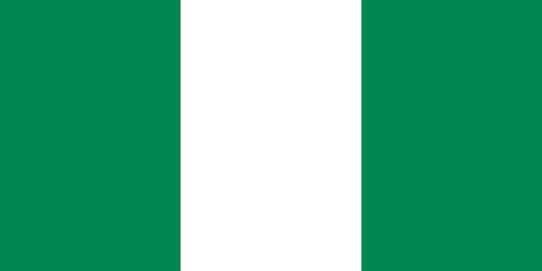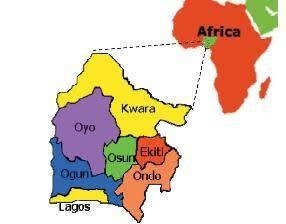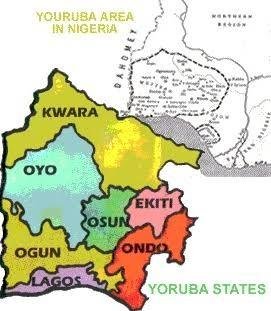NIGERIAN HISTORY: PRE COLONIAL ADMINISTRATION 1

THE YORUBA POLITICAL KINGDOM
Of great significance on the West coast Africa is the Yoruba political system.
There are various beliefs as to the origin of the Yoruba kingdom. Some hold the view that Oduduwa the father of the Yoruba came from the East and after which he conquered many land, he finally settled at Ile –Ife. Others believe that while the earth was still covered by water, Olorun (the supreme god) let a chain from the heaven. It was believed that Oduduwa climbed down it and made an island of earth; some having compared the Yoruba and Egyptians arts and cultures asserted that both have common origins and as such the former descended from the later. However our interest is rather to examine the political, social and economic setting of the kingdom and not to bore us in the historical details of the origin of the Yorubas.
Apart from the authentic claim for common descent from Oduduwa and dispersion from Ile-Ife, it is evident that the Alafin of Oyo at one time wielded political as well as military leadership of the Yorubas. Ooni of Ife was and is accepted as the spiritual head of the Yoruba race. Relevant also was the fact that when Oduduwa died, (his eldest son, Akin, having died too) five Oduduwa renowned princes and two princess succeeded him. The eldest of them all, a princess married Oduduwa’s chief priest who eventually gave birth to Olowu, later known as the Olowu of Owu. The second, who was a princess, was the mother of Alaketu of Ketu. The Overami of Benin, a renowned prince is the third in the line.
The fourth, also a prince become the Oregun of Ila while Onisabe was fifth in the line. The sixth Onipopo of popo was followed by Oranmiyan, Seventh and the last born, Oranmiyan, who succeeded their father, his highness Oduduwa was the most famous of the princes. He was progenitor of the Yorubas. What is particularly very interesting here is the real and the true crown Obas that is. Obas wearing crowns in Yoruba land. In that way, they were direct children who contrast to the vassal and lesser Obas now accepted as crown Obas. What is interesting about the vassal is that they are only qualified to wear coronets. It is thus evidence that from the first batch of Oduduwa princes and princess have emerged the various tribes making up the Yoruba nation today.
POLITICAL ADMINISTRATION
The Yoruba kingdom consisted of the Headquarter and number of towns and villages. The Oba and his senior Chief ruled from the headquarters. Every day, the chiefs met at the Oba’s palace to discuss the affairs of the kingdom. They discussed the conduct of wars; the kingdom’s relationship with the others took decisions and communicated these to the Oba who would issue any necessary directive in his name. In those days, it was not customary for the chiefs to sit together with the Oba because of his sacredness. Thus any decision taken would normally be communicated to him through a messenger. The autocratic tendencies of the Oba were widely curtailed, if there was a proclivity towards this by an Oba, the line of communicating the Oba’s wishes and orders to his people or subjects would paralyzed. In addition to this, any Oba who wanted to rule autocratically would be forced to commit suicide. Other devices to checkmate the autocratic ruling of an Oba if there was a disagreement between him and the chiefs was neglect of religious ceremonies and other rituals.

The EXECUTIVE FUNCTION
The Oba depended on his chiefs, slaves, wives and servants as means of effective communication between him and his subjects. He had no monopoly of either secular or spiritual authority. Throughout Yoruba land, the authority of the Oba is derived from his subject. The Oba was mere figure-head and symbol of authority. He saw nothing and he did nothing by himself, which is the tradition of the people. The fringes around the edge of the crown which veiled the face of the Oba in Yorubaland were not without meaning. They were symbolic of his position and contract with the public. The Oba remaining under the control of his traditional adviser, his chiefs and representative of the people.
To employ the proper language, the Oba, heard and spoke through the eyes, ears and mouth of hischiefs or traditional advisers. He appeared in public, but his face was not seen and his voice was not heard.
Therefore, from the foregoing, it is evident that the Oba enjoyed no monopoly of both secular and spiritual authority in Yorubaland. Nevertheless his personality his social, political and cultural position were highly respected. As there was no written constitution. Customs, conventions and precedents were largely relied upon in decision making. In the regulation of trade, commerce, public works and the maintenance of law and order, the Oba in Council (the Oba, his chiefs and council of elders) are in regular contact with the subjects, initiated and ratified legislation.
The Oba was not only highly respected; a great deal of wealth was attached to the throne. The Oba inherited all that officially belonged to his predecessors. Such might include the late Oba’s wives, besides a war spoils usually accrued to the Oba and his chiefs and it was not unusual for the Oba to receive homage like yams, cattle, wine, kola, and other things from his subjects.
LEGISLATIVE FUNCTIONS
Law making was the responsibility of the Obas and his senior chiefs. Thus the enactment of new laws, imposition of taxes and decision to wage wars were carried out jointly by the Oba and his senior chiefs. Allocation of vacant lands was also done in the same way. Sometimes if the senior chiefs took an initiative or a particular legislation, which the Oba had accepted such a new law would be announced by the town carriers.

JUDICIARY FUNCTION
Whenever there were conflicts, lineage, compound heads and elders came together to settle them the guilty party had to seek forgiveness which was granted if the offence was mild. But if the offence was serious and guilty party did not seek forgiveness, he might be ostracized.
Difficult decisions were often made in the private sittings of lineage and compound heads who were often made in the private sitting of lineage and compound heads who were loyally and collectively bound not divulge to the public, such decision which they might have arrived at, especially if such cases required clandestine treatment. When a case had been settled, particularly a civil and not too serious one, kola, alligator pepper and palm wine are shared – an indication that the decision of the elders are accepted to all. Serious cases, which could not be settling, were generally transferred to the Oba who, with his high chief and elders, effected settlement in their capacity as the highest court of the land. The verdicts of this court were not generally challenged, especially when they were reached by the majority decision. The court levied fines on and imprisoned offenders for minor offences. Very serious criminal offences earned death or banishment.
Hello, my name is @gbenga and I really liked your post but I enjoy posts that are not copy paste. I will advise you start writing post that are cheetah free.
Yours sincerely